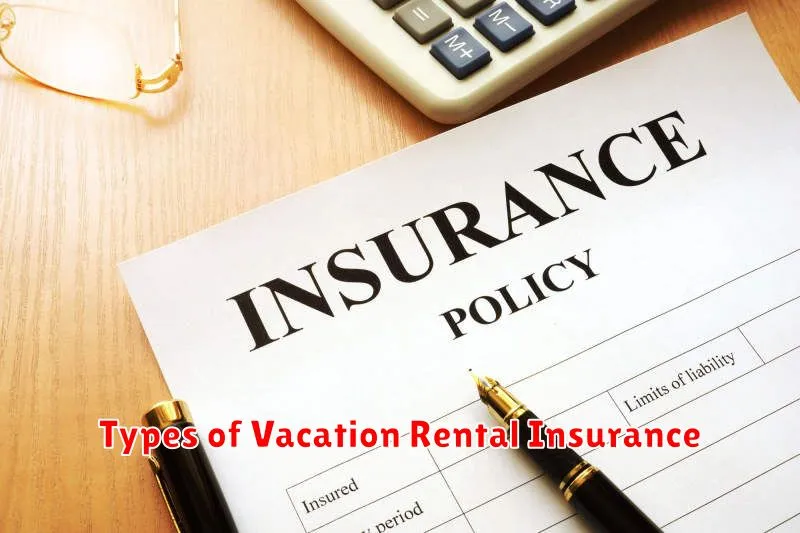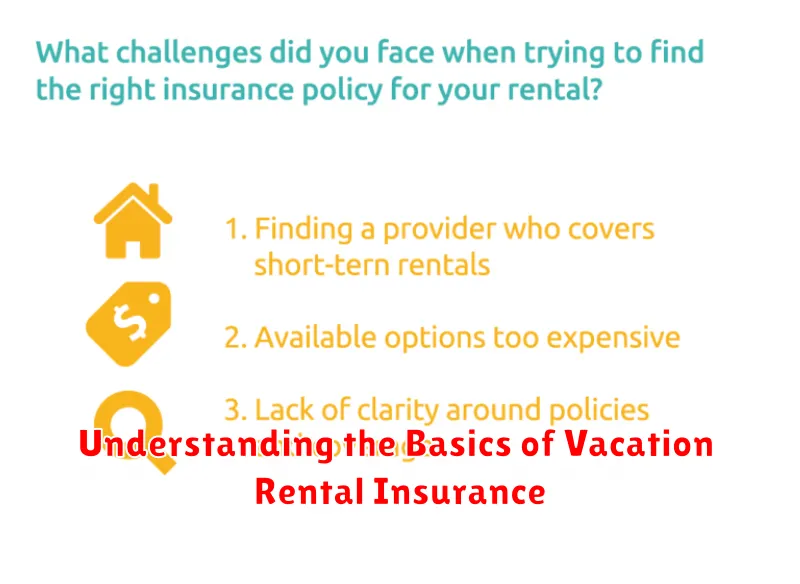Planning a relaxing getaway in a vacation rental? Ensuring your trip is truly carefree requires understanding the basics of vacation rental insurance. From unforeseen property damage to liability concerns, securing the right vacation rental insurance policy can provide crucial financial protection and peace of mind. This article will explore the essential aspects of vacation rental insurance, outlining the different types of coverage available and helping you determine the best fit for your vacation rental needs.
Whether you’re a seasoned vacation rental guest or a first-time traveler, navigating the world of vacation rental insurance can be confusing. Understanding the nuances of coverage options, policy limits, and deductibles is crucial for making informed decisions. By grasping the basics of vacation rental insurance, you can protect yourself from potential financial burdens and enjoy your vacation to the fullest. Join us as we delve into the key elements of vacation rental insurance and empower you to choose the right protection for your next getaway.
Why Insurance Matters for Vacation Rentals
Protecting your vacation rental property is crucial. Standard homeowner’s insurance often doesn’t adequately cover the unique risks associated with short-term rentals. Vacation rental insurance offers specialized coverage tailored to this specific market.
Liability protection safeguards you against claims from guest injuries or property damage. Property damage coverage helps repair or rebuild your property following covered events like fire or storms. Income loss coverage can compensate you for lost rental income if your property becomes uninhabitable due to a covered event.
Investing in the right insurance policy provides peace of mind, allowing you to focus on providing a positive experience for your guests while knowing your investment is protected.
Types of Vacation Rental Insurance

Vacation rental insurance isn’t one-size-fits-all. Different policies cater to various needs and property types. Understanding these distinctions is crucial for adequate protection.
Homeowners Insurance: Often insufficient for vacation rentals, as it typically covers owner-occupied residences. It might offer limited protection for occasional rentals but rarely covers commercial-like activity.
Landlord Insurance: Designed for long-term rentals, it may not cover short-term vacation stays and the associated risks like frequent guest turnover and potential property damage.
Vacation Rental Insurance: Specifically designed for short-term rentals. It offers broader coverage, including property damage, liability protection for guest injuries, and lost rental income due to covered events.
Commercial Insurance: Necessary for large-scale or very frequent rental operations that function more like a business than a secondary income source. It offers comprehensive coverage for higher risk profiles.
What Does Typical Coverage Include?
Vacation rental insurance policies typically offer a range of protections for both property owners and renters. For property owners, coverage often includes protection against property damage from perils like fire, theft, and vandalism. It may also cover liability for injuries sustained by guests on the property. Loss of rental income is another key area often covered, providing reimbursement if the property becomes uninhabitable due to a covered event.
For renters, typical coverage may include protection for personal belongings against theft or damage. Liability coverage can also be included, protecting the renter if they are held responsible for damage to the rental property. Some policies also offer coverage for trip cancellations or interruptions.
Understanding Liability Protection
Liability protection is a crucial component of vacation rental insurance. It safeguards you financially against claims arising from accidents or injuries that occur on your property during a guest’s stay. This coverage can help cover medical expenses, legal fees, and potential settlements.
For example, if a guest slips and falls on your stairs, liability protection could help cover their medical bills and protect you from a lawsuit. It’s important to understand the coverage limits of your policy and ensure they adequately address potential risks associated with your property.
Common incidents covered under liability protection include:
- Slip and fall accidents
- Dog bites
- Damage to guest property
Choosing the Right Coverage Level
Selecting the appropriate coverage level for your vacation rental insurance is crucial. Factors such as property value, location, and potential risks should influence your decision. Liability coverage protects you against claims of bodily injury or property damage from guests. Property damage coverage protects your physical structure and its contents against perils like fire, theft, or vandalism.
Consider the replacement cost of your property and belongings when choosing property damage coverage. A higher coverage level ensures adequate funds to rebuild or replace in case of a total loss. Evaluate the level of risk associated with your property’s location. Properties in areas prone to natural disasters might necessitate higher coverage.
Common Exclusions to Be Aware Of
While vacation rental insurance offers valuable protection, it’s crucial to understand its limitations. Policies typically exclude certain events and damages. Being aware of these common exclusions can help you avoid unexpected costs and ensure a smoother vacation experience.
Natural disasters such as floods, earthquakes, and hurricanes are often excluded or require separate coverage. Intentional acts of damage by renters or their guests are also typically not covered. Additionally, pre-existing damage to the property is usually excluded. Negligence on the part of the property owner or manager may not be covered by the renter’s insurance policy.
Valuables such as jewelry, electronics, or cash may have limited coverage or require additional riders. Always review your policy carefully to understand these exclusions and consider supplemental coverage if needed.

